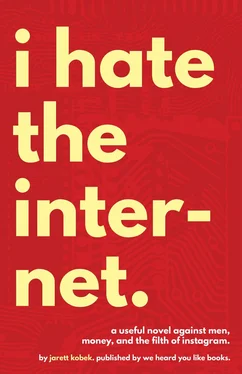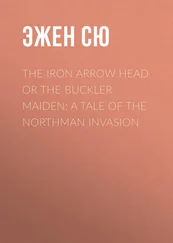And the authors of good novels were terminal bores. The writers of literary fiction were the people who’d come to your party and pass out in your bathtub and then spend years dining out on the tale.
For more than half of a century, American writers of good novels had missed the only important story in American life. They had missed the evolving world, the world of hidden persuaders, of the developing communications landscape, of mass tourism, of the vast conformist suburbs dominated by television.
And so too had they missed the full import of the last fifteen years. The symbolism sustaining the aesthetic and intellectual pursuits of the Twentieth Century was now meaningless. It was empty air. It was gone, vacant, missing, collapsed beneath the weight of two towers.
So much of the dialogue around literature and writing had become about the embrace of human rights , but a massive shift had happened and no one ever mentioned it.
For thousands of years, people had written with a wide variety of materials. Some used pens. Some used pencils. Some used typewriters. Some used papyrus. Some used foolscap.
Now writers used computers, which were the byproducts of global capitalism’s uncanny ability to turn the surplus population into perpetual servants. All of the world’s computers were built by slaves in China.
The business of American literature had become the business of exploiting slave labor. An example of this is the book that you are reading.
This bad novel, which is a morality lesson about the Internet, was written on a computer. You are suffering the moral outrage of a hypocritical writer who has profited from the spoils of slavery.
These lacunae meant that American writers were hopeless at writing about the Internet, which was nothing but the intellectual feudalism produced by technological innovation arriving in the disguise of culture.
By the time it became clear that the Internet was the dominant story of Twenty-First Century life, the survival strategy of many writers was to use the computer network as a marketing device.
In a curious approach for people whose intellectual and financial lives depended on the use of words and grammar, the primary Internet marketing technique of these writers involved the pretense that they, the writers, possessed worse literacy skills than a fifth grader.
“Luv u!” wrote the writers.
“Who r ppl?” wrote the writers.
“C u l8r bb!” wrote the writers.
The thought, anyway, was that these misspellings would help to sell books about tea time affairs in New York State.
Of course, the good novel was a historical artifact and all the world’s misspellings couldn’t trick citizens of the future into caring about the sexual rutting of the useless.
The citizens of the future didn’t care about the empty symbolism of the previous century. They had rejected the good novel and its false vision of American complexity. The citizens of the future had adopted the pop sizzle of the comic book and Science Fiction.
They wanted to read about the sexual rutting of supranatural creatures like werewolves, succubi, vampires, boy wizards, mermaids, minotaurs, centaurs, witches, fairies, jinn, ghosts, zombies, angels, incubi, hacktivists, genetically modified teenagers and ultrawealthy oligarchs.
There was only one solution if you were a writer who wanted to write about the Internet and you didn’t want to write a good novel, and you weren’t interested in pretending that your facility with language was worse than that of a fifth grader, and you didn’t care about the sexual rutting of supernatural creatures like werewolves, succubi, vampires, boy wizards, mermaids, minotaurs, centaurs, witches, fairies, jinn, ghosts, zombies, angels, incubi, hacktivists, genetically modified teenagers and ultrawealthy oligarchs.
The only solution to the Internet was to write bad novels with central personages who do not appear.
The only solution was to write bad novels that mimicked the computer network in its obsessions with junk media.
The only solution was to write bad novels that mimicked the computer network in its irrelevant and jagged presentation of content.
Adeline lived in San Francisco. San Francisco had two distinctions: (1) It was the most beautiful city in America. (2) It was filled with the most annoying people in America.
It had always been like this, from the beginning.
The merit of any moment in San Francisco could be measured by a simple question: was the beauty of the city outweighing its annoying citizens?
Adeline had moved to San Francisco in 1996, which was a defining moment in the city’s history. 1996 was not defined by Adeline’s arrival.
1996 was defined by being the year during which the Internet economy exploded into the collective consciousness.
San Francisco had spent much of the Twentieth Century in decline, which meant that it was a bad place for people who liked doing business but a wonderful place for people who were terrible at making money.
San Francisco had been defined by the culture of people who were terrible at making money. It had become a haven for the misfits of America, most of who were living in the city’s fabulous old houses.
When the Internet economy exploded into the collective consciousness, these people proved that resisting social change was the only thing at which they were less adept than earning money.
After the film version of Trill was released in the late ‘00s and Adeline got kind of famous, she began attending an increased number of social events around San Francisco. Almost all of these events were associated with the arts and publishing.
One person whom she kept seeing around was a man named Kevin Killian. He lacked eumelanin in the basale stratum of his epidermis.
He was a very talented New Narrative writer. He stalked the city and looked like a mid-empire Caesar. He had been writing for decades. His finest books were Shy and Impossible Princess.
Adeline’s best friend, a Science Fiction writer who called himself Baby, was well acquainted with some of the New Narrative people, but Adeline and Baby had never discussed the New Narrative movement.
She had no idea that Kevin Killian was on good terms with her best friend. She had no idea that Baby loved Kevin Killian and his work.
Sometimes the Earth seems very large and sometimes the Earth seems very small.
Kevin Killian was married to another wonderful writer named Dodie Bellamy. Kevin was a gay man. Dodie was a woman. Dodie didn’t have much eumelanin in the basal stratum of her epidermis.
Kevin and Dodie had married each other and they had sex. Adeline knew this because she had read Dodie’s truly excellent book The Letters of Mina Harker, which amongst many other things detailed the relationship between Kevin and Dodie.
Adeline found this beautiful.
When the writer J. Karacehennem moved to San Francisco from Los Angeles in late 2010, he started dragging Adeline to an even greater number of literary events. It was at just such an event, in the backroom of Alley Cat Books on 24th Street, that Adeline and Kevin Killian had a conversation.
Kevin told Adeline that he taught in the MFA program at the California College of the Arts. He asked if she would be interested in coming and talking to his students.
“Most certainly,” said Adeline, “I’d be delighted to penetrate the kooky consciousness of all those bright young things. Why, I’m sure I’ll simply destroy minds and reap souls with all the wonderments of my very own speech.”
It was 2013.
It was twenty years since she’d agreed to draw Trill .
Читать дальше












